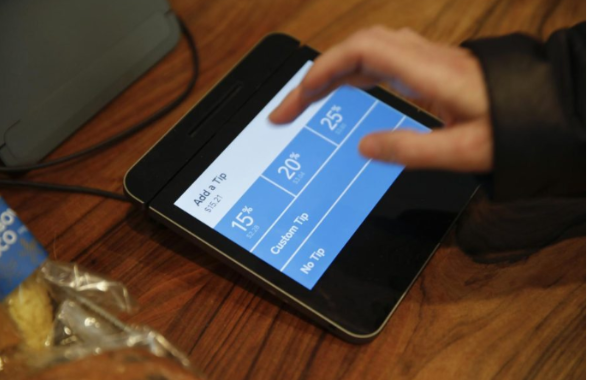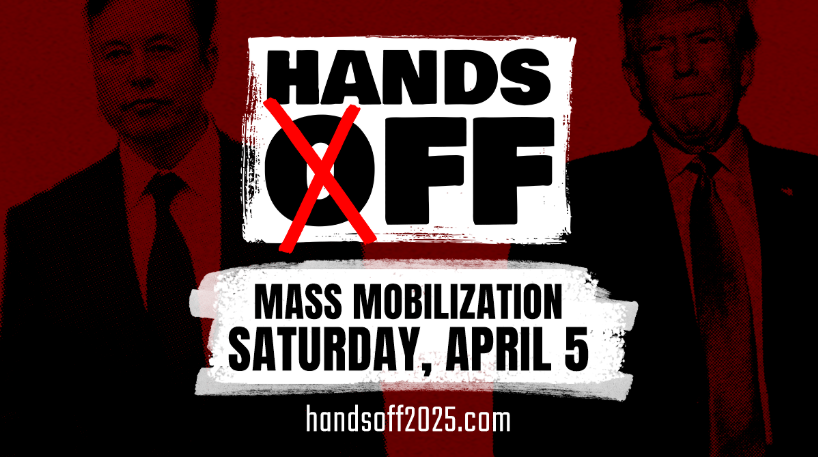Tipping was once a way to reward exceptional servers and waiters, often referred to as an extra thank you for service workers who go above and beyond by making a dining experience special, or a bartender creating the perfect drink. However, in recent years, tipping culture has slowly started to get out of control. Customers are pressured when staring at the iPad POS system deciding whether or not to tip, while it feels all eyes are on you. The awkward and uncomfortable moment when a worker hands you the bag and asks if you’d like to leave a tip, even though they’ve done nothing more than hand you the order from off the shelf is an awkward feeling that makes you feel like you’re being guilted into paying extra for the bare minimum.
When met with digital kiosks with the bright screen flashing the suggested tip, amounting up to 25%, customers are pressured to pay extra, even though all the worker did was hand over a pre-packaged bagel or a bottle of water from under the counter. For example, at Chipotle, customers already pay extra for guacamole or an extra scoop of chicken, yet at checkout they are prompted to tip for a burrito bowl that took a minute to assemble. At self-serve frozen yogurt shops such as Sweet Frog, customers pour their own yogurt and add their own toppings, yet are still met with a tipping jar at checkout. At fast casual restaurants like Panera Bread or Five Guys that don’t offer table service, customers are met with the digital kiosk to tip extra before their order has been made.
Tipping culture has become more than just an inconvenience; it has become a burden to customers around the U.S. In many cases, service workers rely on tips as a significant part of their yearly income, but an issue with the tips is that they are given for minimal service. Instead of businesses offering fair salaries to employees, they shift the responsibility of paying their employees a liveable wage to the customers, creating an awkward and uncomfortable expectation for tips. This places an unfair burden on customers and creates an unsustainable system by pressuring customers to cover the cost of employees wages.
The bigger issue is the fairness in tipping culture. You may find yourself asking the question, “Why should I tip someone who has just simply put cream and sugar in my black coffee or a cashier who rings up my order?” or “Why am I tipping before I have gotten my food?” The workers may perform valuable roles, however tipping should be given to service workers who perform above and beyond rather than a standard transaction that you could frankly do yourself. Additionally, tipping creates a burden on consumers to dictate workers’ pay. Instead of paying an already set fair price for service, customers are asked to evaluate how good the quality of service is, which can lead to guilt and confusion. Particularly, this expectation takes away from the experience of service as customers often feel obligated and forced to tip and second guess themselves on whether they have tipped enough.
A solution would be to eliminate tipping culture entirely and implement fair and transparent wages to all service workers. Employers and major organizations should take full responsibility for wages for their service workers to create fair and liveable salaries that reflect the skills that each employee does. This would allow workers to provide service stress free of relying on tips and eliminating the guilt trips customers feel when met with the tipping options. In addition, businesses and employers could offer charges directly in pricing, as it ensures that workers get compensated without relying on customer tips. This approach would reduce customers’ guilt providing consistent pay and eliminating the overall negative nature around tips. A fair wage system would create a more stable work environment and create a more transparent relationship between businesses and customers.
Despite being ingrained in service industries, tipping culture is a flawed system that creates instability for workers. Tipping culture in industries where workers perform simple tasks, like fast casual restaurants like Chipotle, creates an unfair burden on the customer. In specific settings, customers are often offered to tip before they have gotten any sort of service. These tasks, while important, are not difficult enough to warrant additional compensation on top of the base wages. Tipping culture forces customers to decide how much to give for certain tasks, leaving the service worker questioning if they did enough.
The tipping model in places like Chipotle doesn’t reflect the true nature of the job, as workers are not expected to provide exceptional service, but to simply complete tasks efficiently. This leads to fluctuating and inefficient wages, as customers tip differently depending on biases, moods, or personal income. Because of this, employees may end up with lower wages than their co-worker who did the same job as them. Instead of relying on tips, service workers should be compensated through fair wages that reflect the work they do, regardless of any customer bias or generosity. Eliminating tipping can ensure a more transparent system that compensates employees fairly and removes any pressure from customers, leading to a more straightforward exchange of goods.



















